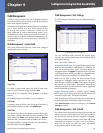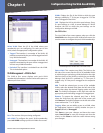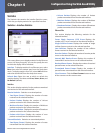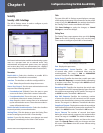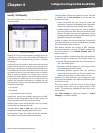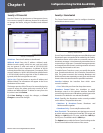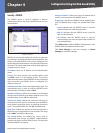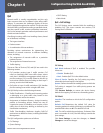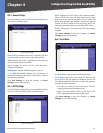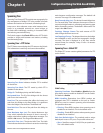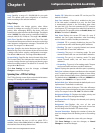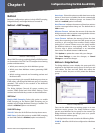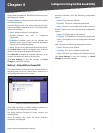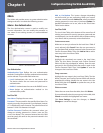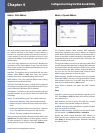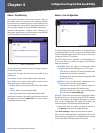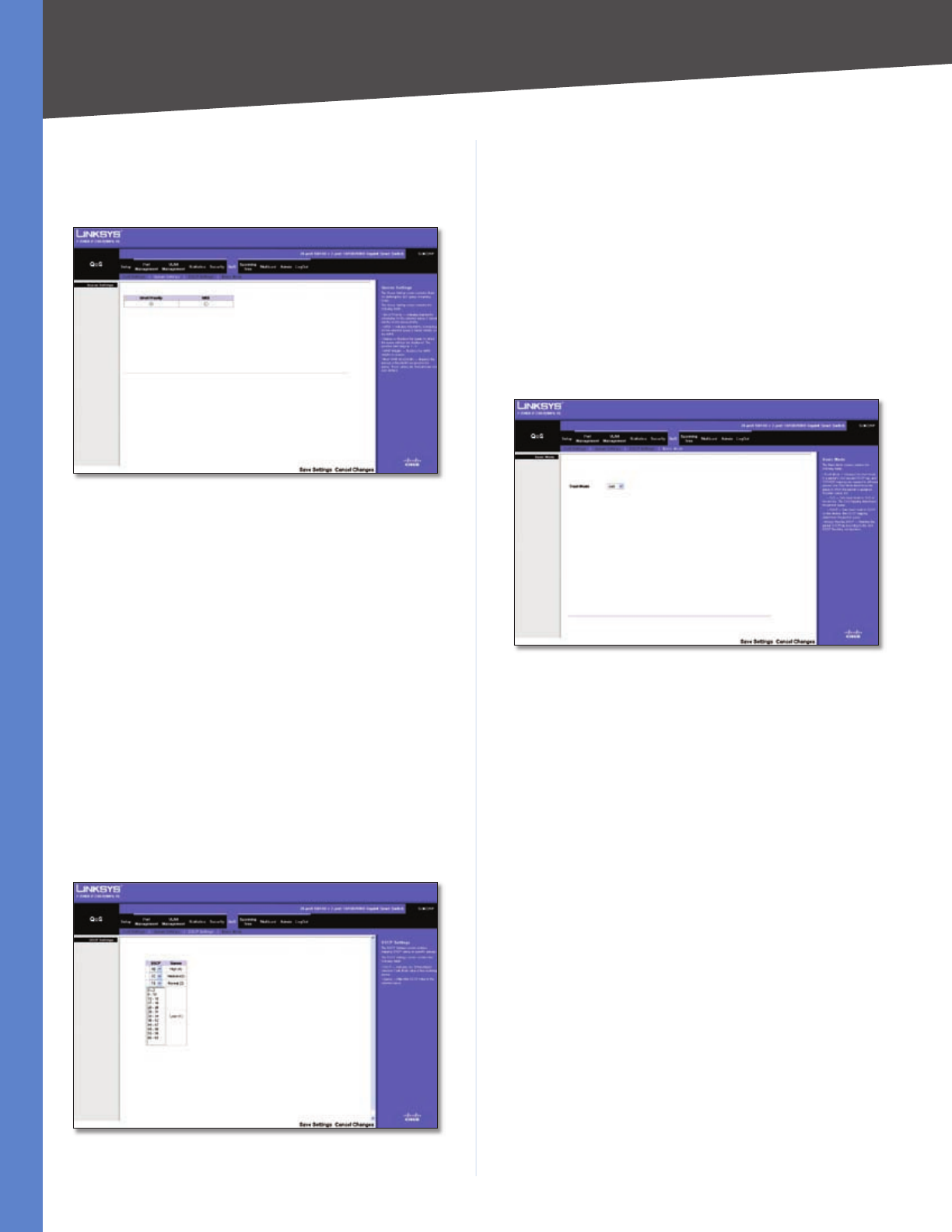
Chapter 4
Configuration Using the Web-based Utility
26
Business Series Smart Gigabit Ethernet Switch
QoS > Queue Settings
The Queue Settings screen contains fields for defining the
QoS queue forwarding types.
QoS > Queue Settings
Strict Priority Indicates that traffic scheduling for the
selected queue is based strictly on the queue priority.
WRR Indicates that traffic scheduling for the selected
queue is based strictly on the WRR.
Queue Displays the queue (1-4) for which the queue
settings are displayed.
WRR Weight Displays the WRR weights to queues.
% of WRR Bandwidth Displays the percentage of
bandwidth assigned to the queue. These values are fixed
and cannot be modified.
Click Save Settings to save the changes, or Cancel
Changes to cancel the changes.
QoS > DSCP Settings
The DSCP Settings screen allows you to map Differentiated
Services Code Point (DSCP) values to specific queues.
QoS > DSCP Settings
DSCP Indicates the DSCP value in the incoming packet.
Select a DSCP value from the drop-down menu to map
that value to the associated queue. You can select the
DSCP value for the High, Medium, and Normal priority
queues. The DSCP values for the Low priority queue are
selected automatically based on the other DSCP values.
Queue The queue (1-4) to which the DSCP value is being
mapped.
Click Save Settings to save the changes, or Cancel
Changes to cancel the changes.
QoS > Basic Mode
QoS > Basic Mode
The Basic Mode screen contains the following fields:
Trust Mode Displays the trust mode. If a packet’s CoS
tag and DSCP tag are mapped to different queues, the
Trust Mode determines the queue to which the packet is
assigned. Possible values are:
CoS Sets trust mode to CoS on the device. The CoS
mapping determines the packet queue
DSCP Sets trust mode to DSCP on the device. The
DSCP mapping determines the packet queue.
Click Save Settings to save the changes, or Cancel
Changes to cancel the changes.
•
•



